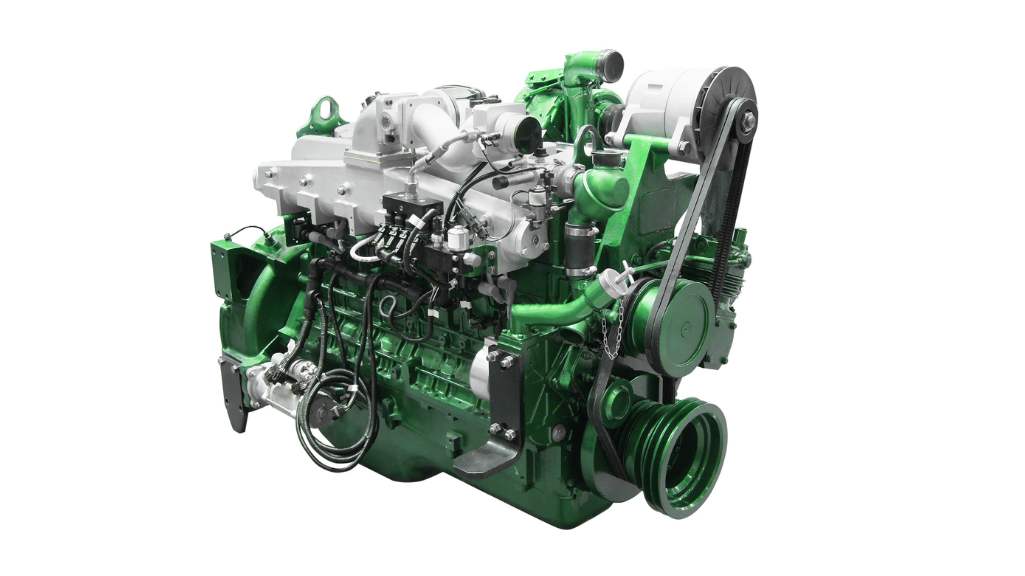Understanding Decarbonization: What it Means for Engine Performance and the Environment?
Swati Mandana
. 4 min read
There are a lot of different words that may be used to talk about climate change and sustainable living. Decarbonization is one of the most powerful words that can be used to describe the process of addressing global warming; however, this word is also used to describe another process that has very little to do with climate change but everything to do with the production of vehicles that are more efficient in their use of fuel. While it may seem unrelated, video chat technology actually plays a role in promoting sustainable living. By leveraging video chat platforms, individuals and organizations can reduce the need for physical travel, leading to a decrease in carbon emissions associated with transportation.

What Exactly is Decarbonization of the Engine?
During this step, an expert mechanic will first scrape off the carbon deposits that have accumulated in the combustion chamber and piston valves, and then they will use a machine to remove the excessive carbon deposits that have accumulated on the cylinder head.
How Exactly does the Decarbonization of the Engine Work?
Decarbonization, also known as engine carbon cleaning, is the process of eliminating carbon deposits from an internal combustion engine. When done correctly, mechanical cleaning is exceedingly thorough; however, the process is typically far more labor-intensive (and expensive) than the chemical cleaning method. In order to assist you in comprehending the cleaning procedure and selecting the most appropriate treatment for your vehicle
Following Explanations of Both Procedures have been Provided
Mechanical: In this step, an experienced mechanic first opens the engine, and then scrapes off the cylinder heads and physically blocks the piston. The final step in this operation is to close the engine back up. When carried out by an experienced mechanic, decarbonization by mechanical means is quite effective. But, if it is done by someone who is not qualified, it might cause severe damage to the engine.
Chemical: With this approach, a trained professional incorporates alcohols and terpenes into the traditional fuel supply. As a result, the carbon deposits are decomposed. Because of this process, the excessive carbon content that was previously present in the fuel injectors, pistons, crown rings, and other components of the engine is now dissolved.
The Urgent Need for Decarbonization of Engines
When it comes to automobiles, the three aspects that are of the utmost significance are horsepower, performance, and gas mileage. Everyone wants to get their hands on the best vehicle that is currently available, regardless of whether it is a diesel or gasoline-powered vehicle. Therefore, if you suddenly start noticing a significant drop in fuel efficiency or optimal performance, one of the many reasons for it could be Engine Carbonization, which in turn gives rise to a dire need for Engine Decarbonization.
When Should you Decarbonize your Engine and How Often Should you do it?
In spite of the fact that there are no hard-and-fast guidelines for how frequently you should decarbonize your engine, the conventional wisdom maintains that you should clean your engine of any carbon deposits approximately every 18,000 miles. But, depending on the fuel that you use, the condition of your automobile, and a number of other factors, it is possible that you will need to take your vehicle to a garage much sooner than that in order to have the engine carbon cleaned.
The Benefits Associated with Operating a Carbon-Free Engine
It can remove up to 75% of the carbon deposits that are found in gasoline and diesel engines; it can bring engine performance and fuel consumption back to normal levels; it can prevent the wear of expensive engine parts (EGR valve, DPF, spark plug, valves, injectors etc.) Flat spots and engine noise are both reduced, and emissions for the MOT test are lowered. Moreover, the engine's lifespan is increased.
Other Advantages
Cleaning up carbon emissions is also beneficial to the environment. This method of engine cleaning is completely sustainable and kind to the environment. Because carbon cleaning does not include the use of additives or chemicals, it does not result in any runoff into the sewage system or the disposal of hazardous material. In addition, as was pointed out earlier, carbon cleansing enables your vehicle to release a reduced amount of harmful pollutants.
What You Should Search for?
If you believe that your vehicle could benefit from having its carbon buildup removed, there are a few things you should check for. There is no way that you could possibly overlook any of the items on this list, so there is absolutely no excuse for doing so.
Poor acceleration Rough engine idling A knocking/pinging sound Rough start High mileage Decreasing fuel economy Loss of power Engine warning light Engine noise Poor acceleration Rough engine idling A knocking/pinging sound Rough start High mileage.
These are just a few of the many warning signals that your car could benefit from a carbon clean. If you're not sure, it's always a good idea to give the company a call and ask if your vehicle could use a carbon clean, which would result in a healthier engine for you.
However, the operation should only take a couple of hours and will gradually increase the engine's efficiency. The usual cost of cleaning the engine soot from your automobile varies depending on the model of your car and its age.
Conclusion
You see, far too frequently, motorists are under the misconception that carbon cleaning may cause damage to their vehicles when in fact, this is not the case. On the other hand, this could not be further from the reality. It is quite easy to book your vehicle in for an engine carbon clean, and the engineer will not disassemble anything from your vehicle while they are working on it. After the booking, you will continue to reap the benefits of having a carbon-free engine for a considerable amount of time.
More Stories from
Understanding Organic Chemistry: A Journey into the World of Carbon Compounds
This article provides a concise overview of organic chemistry, focusing on the study of carbon compounds.
Advantages of Four-Stroke Engines for Automobiles
This article explains the benefits of four-stroke engines in automobiles and describes the four-stroke cycle of intake, compression, power, and exhaust.
Understanding AC and DC: The Fundamentals of Electric Power
This article provides a concise overview of Alternating Current (AC) and Direct Current (DC), the two fundamental types of electrical power.
The Mysteries of the Brain: Recent Discoveries in Neuroscience
From the brain's remarkable adaptability to the profound link between the gut and brain, explore the cutting-edge findings shaping our understanding of cognition and behavior.
Defense Advanced Research Projects Agency (DARPA): Pioneering Innovation in Defense Technology
This article provides a concise overview of the Defense Advanced Research Projects Agency (DARPA), its mission, and its key contributions to revolutionizing defense technology.






.png?width=40&aspect_ratio=1:1)

.png?width=40&aspect_ratio=1:1)




